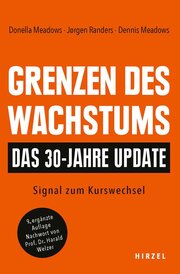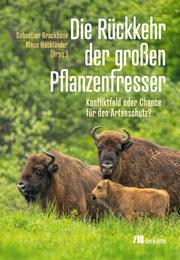On the Nature of Ecological Paradox (E-Book, PDF)
On the Nature of Ecological Paradox
eBook
Bibliographische Informationen
Format: Digitale Rechteverwaltung: Digitales Wasserzeichen
Beschreibung
This work is a large, powerfully illustrated interdisciplinary natural sciences volume, the first of its kind to examine the critically important nature ofecological paradox, through an abundance of lenses: the biological sciences, taxonomy, archaeology, geopolitical history, comparative ethics, literature, philosophy, the history of science, human geography, population ecology, epistemology, anthropology, demographics, and futurism.
The ecological paradox suggests that the human biologicaland from an insular perspective, successfulstruggle to exist has come at the price of isolating H. sapiens from life-sustaining ecosystem services, and far too much of the biodiversity with which we find ourselves at crisis-level odds. It is a paradox dating back thousands of years, implicating millennia of human machinations that have been utterly ruinous to biological baselines. Those metrics are examined from numerous multidisciplinary approaches in this thoroughly original work, which aids readers, particularly natural history students, who aspire to grasp the far-reaching dimensions of the Anthropocene, as it affects every facet of human experience, past, present and future, and the rest of planetary sentience.
With a Preface by Dr. Gerald Wayne Clough, former Secretary of the Smithsonian Institution and President Emeritus of the Georgia Institute of Technology. Foreword by Robert Gillespie, President of the non-profit, Population Communication.
Autorenportrait
Michael Charles Tobias is a global ecologist, anthropologist, historian, explorer, author and filmmaker. He obtained his Ph.D. in the Department of History of Consciousness from the University of California-Santa Cruz and has conducted field-research in nearly 100 countries.. Tobias is the author of more than 45 books (both fiction and non-fiction, as well as several edited anthologies). In addition to his numerous books and published research papers, he has written, directed, produced, executive produced or co-executive produced well over 100 films TV series, documentaries and dramas, most pertaining to environmental, cultural, social or scientific issues. A former Professor at Dartmouth, the University of California-Santa Barbara, the University of New Mexico-Albuquerque and elsewhere. In 1996, Dr Tobias received the "Courage of Conscience Award" for his commitment to nature and non-violence. In 2004 he was the recipient of the Parabola Focus Award for his long-standing body of work aimed at creating a better world. Dr. Tobias is the long-time President of the Dancing Star Foundation.
Jane Gray Morrison is an ecologist whose work has taken her to over 30 countries. As a filmmaker, Ms. Morrison has produced numerous films for such networks as Discovery, PBS (where she also Co-Directed "A Day in the Life of Ireland" for Irish Television and WNET/New York), Hotspots and Turner Broadcasting for which she served as Senior Producer for "Voice of the Planet," a 10-hour dramatic series based upon the history of life on Earth. Her books include "Sanctuary: Global Oases of Innocence"; Donkey: The Mystique of Equus Asinus; Gods Country: The New Zealand Factor; and No Vacancy. She has co-written five books published by Springer. Since 1999, Jane Morrison has served as the Executive Vice President of Dancing Star Foundation, a non-profit organization that focuses on the interdisciplinary humanities and social justice movements as they concern humankind's relationship to the natural world.
Inhalt
E-Book Informationen
„eBooks“ sind digitale Bücher. Um eBooks lesen zu können, wird entweder eine spezielle Software für Computer, Tablets und Smartphones oder ein eBook-Reader benötigt. Da es eBooks in unterschieldichen Formaten gibt, gilt es, folgendes zu beachten.
Von uns werden digitale Bücher in drei Formaten ausgeliefert. Die Formate sind EPUB mit DRM (Digital Rights Management), EPUB ohne DRM und PDF. Bei den Formaten PDF und EPUB ohne DRM müssen Sie lediglich prüfen, ob Ihr eBook-Reader kompatibel ist. Wenn ein Format mit DRM genutzt wird, besteht zusätzlich die Notwendigkeit, dass Sie einen kostenlosen Adobe® Digital Editions Account besitzen. Wenn Sie ein eBook, das Adobe® Digital Editions benötigt, herunterladen, erhalten Sie eine ASCM-Datei, die zu Digital Editions hinzugefügt und mit Ihrem Account verknüpft werden muss. Einige eBook-Reader (zum Beispiel PocketBook Touch) unterstützen auch das direkte Eingeben der Login-Daten des Adobe Accounts – somit können diese ASCM-Dateien direkt auf das betreffende Gerät kopiert werden.
Da eBooks nur für eine begrenzte Zeit – in der Regel 6 Monate – herunterladbar sind, sollten Sie stets eine Sicherheitskopie auf einem Dauerspeicher (Festplatte, USB-Stick oder CD) anlegen. Außerdem ist die Anzahl der Downloads auf maximal 5 begrenzt.
Andere Artikel von "Tobias, Michael Charles/Morrison, Jane Gray"
Lieferbar innerhalb ca. einer Woche

Lieferbar innerhalb ca. einer Woche

Lieferbar innerhalb ca. einer Woche

Weitere Artikel aus der Kategorie "Biologie/Ökologie"
Lieferbar innerhalb 24 Stunden

Neuerscheinung

Lieferbar innerhalb 24 Stunden

Lieferbar innerhalb 24 Stunden









